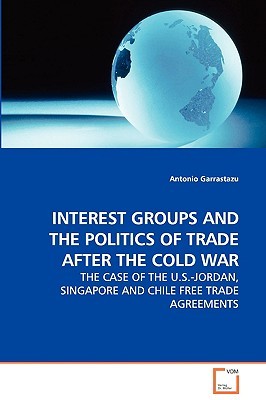
- We will send in 10–14 business days.
- Author: Antonio Garrastazu
- Publisher: VDM Verlag
- ISBN-10: 3639105591
- ISBN-13: 9783639105599
- Format: 15.2 x 22.9 x 1.3 cm, softcover
- Language: English
- SAVE -10% with code: EXTRA
Interest Groups and the Politics of Trade After the Cold War - The Case of the U.S.-Jordan, Singapore and Chile Free Trade Agreements (e-book) (used book) | bookbook.eu
Reviews
Description
The politics of trade after the Cold War has transformed U.S foreign policy. Given the surge of interest in free trade agreements (FTAs) and the far- reaching political and economic repercussions of globalization, the post-Cold War period constitutes a critical juncture in the history of U.S. international economic policy and trade diplomacy. The U.S. began to seek FTAs as a way to maintain its strategic influence. Despite its hegemony, the U.S. has succeeded in negotiating and implementing relatively few FTAs. Why does the U.S. have relatively few FTAs compared to other economically powerful countries? Why has the U.S. taken longer to negotiate certain FTAs over others? The book will analyze the evolution of interest group coalitions and the persistent conflict surrounding FTAs and international trade since the end of the Cold War by examing the negotiations leading to the agreements signed with Jordan, Singapore, and Chile.
EXTRA 10 % discount with code: EXTRA
The promotion ends in 18d.18:10:54
The discount code is valid when purchasing from 10 €. Discounts do not stack.
- Author: Antonio Garrastazu
- Publisher: VDM Verlag
- ISBN-10: 3639105591
- ISBN-13: 9783639105599
- Format: 15.2 x 22.9 x 1.3 cm, softcover
- Language: English English
The politics of trade after the Cold War has transformed U.S foreign policy. Given the surge of interest in free trade agreements (FTAs) and the far- reaching political and economic repercussions of globalization, the post-Cold War period constitutes a critical juncture in the history of U.S. international economic policy and trade diplomacy. The U.S. began to seek FTAs as a way to maintain its strategic influence. Despite its hegemony, the U.S. has succeeded in negotiating and implementing relatively few FTAs. Why does the U.S. have relatively few FTAs compared to other economically powerful countries? Why has the U.S. taken longer to negotiate certain FTAs over others? The book will analyze the evolution of interest group coalitions and the persistent conflict surrounding FTAs and international trade since the end of the Cold War by examing the negotiations leading to the agreements signed with Jordan, Singapore, and Chile.


Reviews